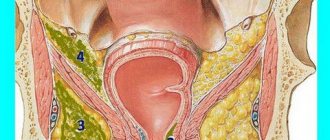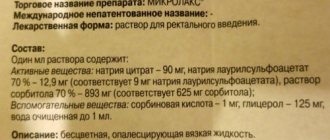17778 0
- How to determine if it is colic
- At what age and why does colic appear?
- What to do with colic
- What not to do with colic
- How to help your baby
Infantile colic is not a diagnosis, so there is no clear definition. This is not a symptom, not a disease, and therefore not a pathology. There are no medicines to treat them!
Colic is a behavioral complex, or more precisely, the crying of a child, which is characterized by the big three.
- Starts from the 3rd week of life
- Appears more than 3 times a week
- Lasts about 3 hours a day
How to determine if it is colic;
Episodes of crying
- occur suddenly against a background of complete physical health and well-being
- have no precursors or visible causes
- appear at approximately the same time of day
- pass spontaneously and inexplicably
Most often, attacks occur in the afternoon, late afternoon or before bedtime, as well as at night.
Sleep becomes restless and intermittent.
Often, crying turns into a piercing scream and is accompanied by motor restlessness of the baby. His face turns red, a grimace of pain or displeasure appears, his fists clench, his legs are brought to his stomach, his back arches. As a result of such motor activity, the child may burp and have bowel movements.
Attempts by parents to put the child to rest are futile, which leads to their nervous, mental, moral and physical exhaustion.
How to help cope with colic?
Although sooner or later colic goes away on its own, the baby suffers during the attack. You can try to alleviate his condition:
- a nursing mother should give up milk and dairy products for several weeks and see if the attacks become less frequent;
- she also needs to eat less foods that cause bloating and fermentation in the intestines;
- during feeding, you need to ensure that the baby swallows less air with milk: apply it correctly to the breast and hold it upright for several minutes after eating;
- Before feeding, you need to lay the newborn on his tummy, this exercise strengthens the abdominal wall and serves as a prevention of colic;
- during an attack, you can easily stroke the child’s belly clockwise, alternately bend your knees and press his legs to his tummy - this will help the gases pass;
- The pain can be relieved by skin-to-skin contact between the baby and the mother and dry heat - a heating pad, a warm diaper;
- colic becomes more intense due to stress, so provide your baby with a calm environment, do not quarrel in front of him, do not raise your voice, do not show irritation or anxiety.
Why? What can influence their appearance?
It is fundamentally wrong to talk about the immaturity of a child’s gastrointestinal tract if he is full-term and mature for his age. His body is formed exactly as much as necessary. It has been like this for centuries, millennia. Each age period and each organism has its own characteristics, and infants also have them.
Science does not know the true causes of infant colic.
There are only theories and guesses, which mostly come down to the intestines. There are studies that show the role of the nervous system and environmental factors. Predisposing factors
1. Smoking in the family 2. Caesarean section, use of antibiotics 3. Food from the mother’s diet:
- strong broths (meat and fish)
- artificial colors
- flavorings
- milk and dairy products
- fresh vegetables and fruits
- chocolate
4. Maternal-infant distress 5. Feeding technique 6. Daily routine
Ways to implement colic
- swallowing air (aerophagia)
- excessive gas formation
- food intolerance (allergy)
- lactase deficiency
- intestinal dysbiosis
There is not just one single reason. Most often there are several of them, and therefore the approach to the solution should not be one-sided, but comprehensive, with the involvement of all family members!
How can parents cope with colic in their child?
When your baby suffers from colic, pay special attention to your emotional state. Caring for a baby with colic is not an easy task, and many parents worry a lot, suffer from the inability to help the baby, and end up experiencing severe stress. No matter how desperate you may be trying to soothe a crying baby, never shake him!
The shaking could cause him to bleed on the brain and lead to lifelong injury and possibly death. If you feel that you are losing control of the situation and are unable to respond adequately to a crying child, the following tips may help you:
- Take a few deep breaths and count to ten.
- Put the baby in the crib
and leave the room to pause and recover.
- Call a friend or family member so they can support you.
- Call the clinic and make an appointment with your pediatrician to rule out a disease not related to your baby's colic.
- Ask and accept help from friends and family if they offer to look after your baby. You need to take breaks and rest.
- Carrying your baby in your arms during a colic attack calms him down. Don't blame yourself for spoiling him. You try to help him feel better.
FAQ
- Experts do not have a consensus on the cause of colic in newborns. However, they highlight possible precipitating factors, such as:
- flatulence;
immaturity of the digestive system;
- immaturity of the nervous system;
- overfeeding;
- underfeeding;
- the baby does not burp all the air;
- food allergies or milk intolerance;
- exposure to tobacco smoke;
- unfavorable emotional background in the family.
- Don't overfeed your baby.
Let your baby burp air more often.
- The baby is crying inconsolably.
The baby is screaming.
About the role of family and mother
What all families with children who develop colic have in common is the parents’ lack of confidence in their abilities and the low self-esteem of the mother herself. A mother is a support for a child, but who can she lean on? The woman cares for the baby, and the family cares for the woman.
In the mother-child dyad, someone must be the leader and someone must be the follower. When the mother gives up her position, the baby ceases to feel support and protection, and stress increases. All her fears and worries are transferred to the child. Stress hormones act immediately and trigger a cascade of reactions involving the gastrointestinal tract, developing cramps and abdominal pain.
The efforts of relatives and friends should be aimed at helping and supporting the woman-mother. Criticism and reproaches towards her are unacceptable! The attention and support from the child's father is priceless.
Harmonious relationships in the family and the calmness of the mother are powerful factors in the prevention and correction of colic.
Our opinion is subjective. To communicate more substantively with a specialist (be it a doctor or psychologist), start keeping a diary of observations of the child’s behavior and your actions. Such recording of events will help to identify cause-and-effect relationships even without seeking help. Perhaps the answers lie “on the surface”.
When does colic start?
Colic usually begins around three weeks
and peaks between the fourth and sixth weeks of a baby's life.
By the age of about three months
, the discomfort in the abdomen, as a rule, leaves the child.
Attention:
if after the 12th week of life the baby experiences severe colic, a thorough examination is necessary to rule out a serious gastrointestinal disease!
Just the facts
Elena Baibarina, chief neonatologist of the Russian Ministry of Health, tells several facts about babies.
How to help your baby?
Put yourself in his shoes. Imagine, for a long time you lived surrounded by constant sounds and movements, were in a limited space that gave you everything you needed and held your posture; In order to change one's position, it was necessary to make efforts. And suddenly everything changed. Sounds only in the daytime, wild freedom of movement and nothing helps you maintain your pose. In addition, it is difficult to understand what is happening, and even more difficult to express it to someone. What will be your reaction? For example, an uncomfortable position, skin irritation, hunger, a desire to return everything to the way it was? What will you do?
Anything that reminds them of being in the womb has a beneficial effect on babies. Swaddling imitates her walls, white noise imitates her sounds, rocking imitates her movements.
An effective way to calm is through distraction. Advertising with dynamic changes of pictures, toys with sounds or wind chimes, a garland with flickering lights, a fan, a shower will help to shift attention to external stimuli. The combination of visual or sound factors with physical ones will help with this even more, for example, the wind blowing in the face or the feeling of drops of water on the body.
Some people will benefit from water procedures, some people will benefit from a simple walk, some people will benefit from a trip in a car, some people will benefit from a massage. A way can be found. The main thing is not to give up and try to understand the baby.
Infantile colic. Panic away!
Infantile colic. Panic away!
This article will not contain a Kremlin pill like: “Now we will tell you how to radically defeat colic.”
For one simple reason - there is simply no such almighty remedy for colic. What is colic in newborns? Their cause is still unknown. There are theories of their occurrence - errors in care and nutrition, immaturity, etc., but let’s say right away: none of them is recognized as having any priority in the formation of colic. Infantile colic is thought to be attacks of abdominal pain. That's what it's supposed to be. Because a crying child indicates pain. If he has no visible reason to react by crying, we assume colic. I could say - I would say, but infant colic is a very early age, the baby cannot speak, and the doctor can diagnose colic based on certain criteria.
General information about colic:
- age of onset and cessation of symptoms – up to 5 months
- bouts of crying occur in the midst of complete well-being - there seems to be no reason for him to cry. Just a minute ago I was quite healthy and playing
- does not calm down from commonly used methods of calming down
- This is observed at least 3 days a week, for 3 or more weeks. May cry for 3 or more hours a day.
This “ rule 3”
always applies.
This is how colic is actually diagnosed - these are the so-called Wessel
criteria .
The following statements will also help the doctor. You will notice that the child is crying somehow differently. That is, every child cries from time to time. It sounds strange, but how long can babies cry normally? So, it turns out that in the first 6 weeks – up to 130 minutes a day in total. Already closer to 12 weeks – up to 70 minutes. But with colic, it is not even the duration of crying that will be of decisive importance.
There is some unusualness in crying:
- suddenness
- inconsolability (usual methods that previously helped successfully do not help)
What else do we know about colic?
The age of onset of colic is 3-6 weeks, the age of completion is 3-4 months. By the age of three months, colic goes away in 60% of children, and by four months - in 90% of children.
Most often, infant colic begins in the evening.
Somewhere you will read that boys are more prone to colic than girls, infants are less likely than artificial babies, but, in fact, according to research, infant colic does not depend on:
- gender of the child
- feeding methods (breast or bottle feeding)
- term or prematurity
Colic in a baby is always stressful for the mother.
Some sources contain the phrase: “colic has no negative consequences for the child, it goes away suddenly just as it started.” We don't agree completely. Stress is always toxic no matter what age it appears. And pain is stress, and the child experiences this stress. And although yes, colic does not leave visible problems - after it passes, the child plays, eats, forgets about it, does not lag behind either in mental or physical development, but it was an episode of pain and the baby experienced it. What to do if you think your baby has colic?
The first and most important thing is not to panic.
It is absolutely known that the duration of a crying attack can be prolonged if the mother is worried, screams, panics, calls an ambulance, demands any action from the father, puts the baby to the chest (with colic the baby will refuse, as a rule), and the level of adrenaline in the milk goes off scale - this causes the baby to become even more stressed—an even longer episode of crying.
Do not panic.
It seems to you that something happened to him: appendicitis, he got sick, etc. The best thing to do when you already know that your baby has recurring colic is to go into the room and distract him. Speak kindly. Rub your tummy. Wear vertically or however he likes. Use white noise (the sound of a washing machine, a running humidifier). But, in the end, every family has its own recipe. The outcome of colic is always the same - it will torment you and the baby and will go away. You need to empirically determine what exactly will help your baby overcome it faster and with less cost to the nervous system. Adrenaline and your anxiety definitely won't help.
If a crying attack begins.
Answer yourself the question. Is it colic?
Check for signs of illness :
- high temperature, rash, unusual posture, swollen stomach - do not touch, external, any manifestations that could explain the crying.
- He may be hot, cold, hungry, or his diaper is tight.
Have you ruled out all the reasons that are obvious to you?
We try to calm him down, stroke his belly, carry him vertically, or in a sling, swaddle him or, on the contrary, try to unswaddle him. We use all the methods that can help - right down to sitting in a car seat and traveling around the city. As a rule, colic goes away after the gases pass, the baby farts several times and calms down.
As you can see, there is no cure for colic. For some, a gas tube will help, for others, drops for colic or tea with fennel. It is clear that the latter is the scope of medical prescriptions, and discuss the effectiveness of these methods with your pediatrician.
Prevention of colic exists
- these are generally accepted preventive measures, and they have a certain percentage of effectiveness:
- When applying the baby to the breast correctly, there should be not only a nipple in the baby’s mouth, but also an areola. Avoid swallowing air.
- It is better to express the first portions of milk, rich in lactose, and only then apply it to the breast.
- The diet of a nursing mother is also suspect. Try not to consume anything that is obviously suspicious.
- If your baby is bottle-fed, then choosing the right formula can help the colic problem. Discuss with your doctor. Here's a selection of bottles. There should be one that will provide a minimum amount of swallowed air.
- Before each feeding, we hold the baby on his tummy. It turns out longer - good.
- After each feeding, we carry it vertically so that all swallowed air can escape.
IMPORTANT
: There is no evidence that not breastfeeding has any beneficial effect on colic. The importance of breastfeeding is obvious, and it should not be abandoned due to colic.
Mothers with colic suffer no less than the child - they worry, do not get enough sleep, cannot devote enough time to their older child, husband, or do something around the house, therefore: Dads! Suddenly you are reading this article. Your help will be invaluable. It consists of a calm atmosphere at home and all possible help, without any emotional outbursts. Let mom rest, eat, take a shower. Help. A healthy mother is the key to a healthy baby.
- Date of publication: 04/04/2019
- Care issues
About the daily routine
A child is also a person, and everything human is not alien to him. If he sleeps during the day, pleasing his parents, then what should he do at night? That's right, stay awake. Hence the question. Or maybe the parents have colic? Who created problems for themselves out of the blue with their own hands.
The child demands attention! The success of a sound sleep in an active day. How? Active: feeding, wakefulness, gymnastics, massage, communication, change of environment, etc. And your day's work will pay off with a restful night's sleep.
About the role of microbiota
A great variety of representatives of the world of viruses and bacteria live on the human skin and mucous membranes. And this diversity is extremely important. Together they are a kind of “border guards” who protect the internal environment of the body. Moreover, the intestines are a training ground for the immune system. And the more types of microbes are present in it, the more adapted (trained) the owner is.
If the intestines’ own inhabitants cannot cope with the tasks, or their numbers are extremely small, microbes unfriendly to humans begin to predominate, causing harm and disrupting the functions of the skin and mucous membranes. This leads to increased permeability, deterioration of barrier functions and the development of a number of adverse consequences.
In such cases, trusted friends – probiotics – can come to the rescue.
Symptoms of colic
Usually, it is not difficult for parents to understand that the baby has developed colic. Here are the signs and symptoms that indicate that this “big little” problem has not bypassed you.
- The baby's worries began two weeks after birth. As a rule, it is at this time that colic makes itself felt.
- Pain in a newborn during colic is usually paroxysmal. Mostly colic makes itself felt in the evening and can last for several hours.
- The child draws his legs in, moves them, and cries a lot, often so much that nothing can calm him down, not even his mother’s breast.
- If you touch a newborn’s tummy during periods of attacks, you will see that it is enlarged and swollen, quite hard.
- In this case, immediately after stool or passing gas, the baby feels relief and calms down.
It is important!
Probiotics are live microorganisms that, when administered in adequate quantities, have a positive effect on human health.
All over the world, only two microorganisms have the largest evidence base for their effectiveness - LGG and BB-12 from Chr. Hansen. They influence both the composition and diversity of the intestinal microbiota, the formation of stool (number and consistency) and our mood and behavior.
It has been proven that the presence of LGG in a baby's diet reduces episodes of crying and fussiness.
About fermented milk products
Some probiotics, including L.rhamnosus LGG®, have enzymatic activity and the ability to transform food into other products. This usually occurs through the formation of lactic acid and other metabolic end products. Thus, fermented milk products contain not only probiotics, but also their metabolites, which have a beneficial effect on digestion.
Fermented milk products based on whole cow's milk (and other animals), such as biolact, children's kefir or yogurt, cannot be used in the diet of children in the first eight months of life. For this purpose, children's fermented milk formulas have been created, balanced in composition and subject to strict production control. They can be used from birth and even in full. Adding such a mixture to the diet, for example, Nutrilak Premium Fermented Milk, helps ease the digestion process, regular bowel movements and maintaining microbiota balance.
About allergies
Allergy to cow's milk proteins (CMPA) is currently a common occurrence in young children. Their presence in the mother's diet or infant formula can lead to impaired motility and inflammation of the intestinal mucosa. Therefore, for a period of 2 to 4 weeks, it is recommended to exclude dairy products in any form from the mother’s diet (from whole milk to fermented milk products, cheese and powdered milk in industrial products).
In the case of mixed or artificial feeding, it is better to replace the usual formula with a specialized one, for example, Nutrilak Premium Hypoallergenic, in which not only the protein is changed, but also contains oligosaccharides and probiotics (bifidobacteria B. Lactis (BB-12)TM and lactobacilli L.rhamnosus (LGG )®).
How to calm and help a baby with colic
When a baby has a colic attack, many parents feel helpless and confused and don't know how to calm a crying baby. Here's what you can try if your baby has colic:
- Rock the baby.
Rock your baby in your arms or place him in a swing or bouncer. Carry your baby in a sling or simply pressed to your chest. Even steps and physical contact with the mother will help the baby cope with discomfort. Take your child for a ride in the car in a car seat. Movement and steady noise can calm him down.
- Watch your diet.
If you are breastfeeding, colic may be caused by excessive consumption of animal protein, in particular from cow's milk (cheeses, yoghurts, etc.). If you suspect that your baby is reacting to a number of dairy products in your diet, try to gradually eliminate them , while simultaneously observing whether the baby’s condition has changed for the better. Excessive consumption of caffeine by the mother can also cause discomfort in the baby. Read more about caffeine during breastfeeding.
- Change the mixture. If you are formula feeding your baby, talk to your pediatrician about which hypoallergenic formulas you can try in case your newborn's colic is due to an allergy to a component of the formula.
- Warm.
Warm diapers placed on your baby's tummy with an iron can also help calm him down.
- Let your baby burp air more often.
Let your baby burp several times during the feeding, not just at the end. For example, if you bottle-feed your baby, you can let him burp air after every 50-100 ml of milk he drinks. And if you're breastfeeding, let him burp air when you switch breasts. Read more about how to help your baby burp.
- Give your baby a pacifier.
If your baby is over 28 days old and you have fully established breastfeeding, offer him a pacifier. Sucking on a pacifier can help calm your baby. Never give your baby a pacifier smeared with honey! Honey is dangerous for children under one year of age. Find out more about at what age children can eat honey.
- Give your baby a light massage.
Place your baby tummy down on your lap and stroke his back. Learn more about how to massage your baby.
- Turn on white noise.
The vacuum cleaner will create a uniform “white noise”, against which the baby will calm down and become quiet.
- Prepare your baby a warm bath.
If your baby is soothed by being in water, give him a warm bath when colic begins. Never leave your baby unattended in the bathroom.
- Play calm music, sing or talk to your baby.
This may help him calm down.
- Swaddle your baby.
Some babies calm down faster if they are swaddled or placed in a changing bag.
Alas, there is no miracle cure for colic in newborns. And sometimes, no matter what you do, the baby will cry. You are not to blame for anything, do not scold yourself in such situations! Try different methods from our list. If one doesn't work, try the next one. You may find that once you try all the ways to soothe your baby and find the one that works best, your baby will simply outgrow colic.










